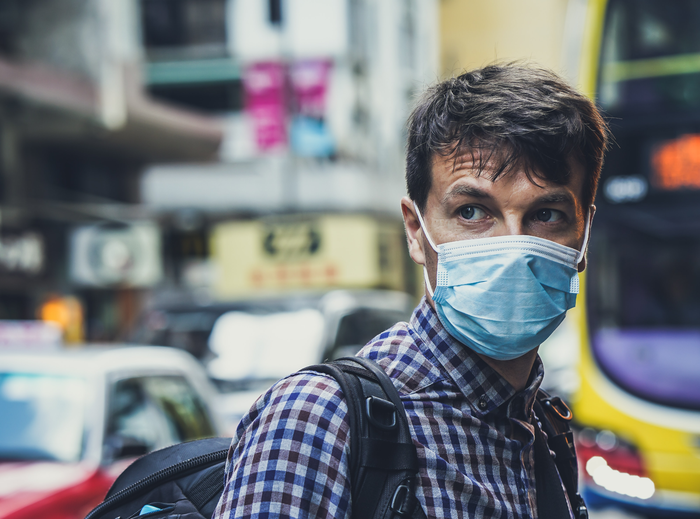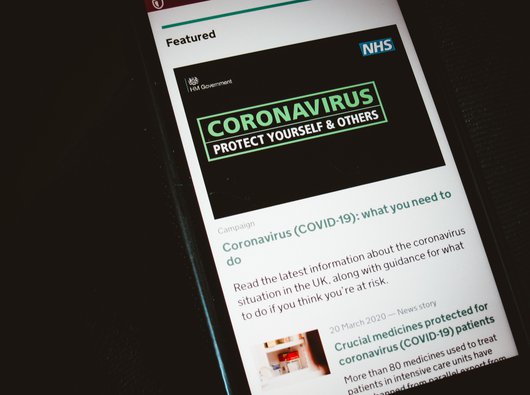Does having chronic lymphocytic leukaemia (CLL) increase your risk from the coronavirus?
We take a closer look at the findings of two studies into people with CLL who have had the coronavirus.

It has been clear for some time that people with blood cancer are more likely to become seriously ill if they get the coronavirus. But with the coronavirus being so new, there has not been enough evidence to give clear advice based on people’s type of blood cancer and stage of treatment.
But two studies have now been published on people with chronic lymphocytic leukaemia (CLL) who have had the coronavirus. They still leave unanswered questions, but in this blog we’ll explain the findings so if you have CLL then you’ll be in a better position to make your own informed decisions.
The first study, in the journal Blood, looked at what had happened to 198 people with CLL from the US, Europe and South America who were diagnosed with the coronavirus. The second, published in the journal Leukemia, looked at 190 people with CLL, mostly from Italy and Spain, who were diagnosed with it.
The first study found that, excluding people who were still ill when the study finished, 44% of the patients died. In the second study, this figure was 36%. This is a higher death rate than you would expect in a group of people who did not have cancer.
The actual death rate is almost certain to be lower.
But importantly, these results do not tell us someone’s risk of dying are if they have CLL and get the coronavirus. This is because both studies only included people who became ill enough to be diagnosed. They did not include people who got the virus but were not diagnosed because they only had mild symptoms or no symptoms at all. We do not know how many people with CLL this applies to, but the actual death rate is almost certain to be lower.
It is also important to remember that these cases are all from earlier this year, and since then doctors have got better at treating it. So if the same number of people with CLL were diagnosed over the next few months, we would hope that more of them would survive.
But these studies do suggest that the coronavirus is significantly more dangerous for someone with CLL than for someone who does not have cancer. They suggest that people with CLL should continue to take extra precautions to avoid coming into contact with the virus.
Youth appears to offer less protection to people with CLL.
The study in Blood found that the people who were aged 75 or over were more likely to die than those under 75. But the study in Leukemia found that while people aged over 65 were more likely to become seriously ill, but the proportion of over 65s and under 65s who died was about the same.
This isn’t definitive evidence, but it does seem to suggest that while older people with CLL may be more vulnerable to the virus, being younger doesn’t offer people with CLL anything like the same level of protection as it does to people who don’t have cancer.
Another finding from the studies is on stage of treatment. People with CLL often spend years living with it with no symptoms and not needing treatment (called “watch and wait”), and some people may have assumed that if you’re on watch and wait then you might be less vulnerable than people whose CLL has progressed to the point where they needed treatment.
The Blood study found that people on watch and wait had a similar chance of dying to those who were on treatment or who had been on treatment in the past. And among the people included in the Leukemia study, those who were currently on treatment were less likely to become seriously ill from the coronavirus than people who were on watch and watch or who had not had treatment for at least a year.
If you have CLL here are the key messages you should take away:
As with other types of blood cancer, you are significantly more likely to become seriously ill if you get the coronavirus, so you should take extra precautions to avoid it.
Younger people with CLL or people on watch and wait may have assumed they were at much lower risk than older people or people on treatment. These results suggest this may not be the case.

If you have CLL, we hope that understanding more about the risks you face will help you as you decide about how much to avoid contact with other people over the next few months. It’s worth talking to your specialist about these findings, as they’ll be able to put them into the context of your own individual circumstances. We also have information on work and financial support.
And while people with CLL should be doing what they can to avoid the coronavirus, it is also really important that they continue to get the healthcare they need. If you’ve got hospital treatment over the next few months and are worried about attending because of the virus, talk to your treatment team about it.
Need to talk to talk about blood cancer?
With the infection rate rising, we understand that this is a worrying time for people with blood cancer, and this can be an upsetting subject to read about. If you’d like to talk to someone about it, you can contact our support services here, or call our support line on 0808 2080 888.
Many thanks to CLL Support for inputting into this blog.

Want to read more stories like this?
Join our mailing list to get stories like this delivered directly to your inbox every month.
